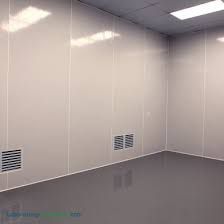 Fiberglass-reinforced panels (FRP) sheets are composed of a matrix material, typically a polymer resin, reinforced with fibrous materials derived from carbon, wood, glass, basalt, aramid, etc. Since resins are already resistant to chemicals and other abrasive materials, the fibers enhance the FRP sheets’ strength, elasticity, and other properties, making them stronger, lighter, and more durable than other materials. These properties make FRP sheets the most sought-after material in aerospace, industrial, construction, automotive, and other industries.
Fiberglass-reinforced panels (FRP) sheets are composed of a matrix material, typically a polymer resin, reinforced with fibrous materials derived from carbon, wood, glass, basalt, aramid, etc. Since resins are already resistant to chemicals and other abrasive materials, the fibers enhance the FRP sheets’ strength, elasticity, and other properties, making them stronger, lighter, and more durable than other materials. These properties make FRP sheets the most sought-after material in aerospace, industrial, construction, automotive, and other industries.
Market Share of Fiberglass-Reinforced Panels (FRP) by Application
Automotive holds a significant share of 31% in the global FRP market, followed by the construction industry, which uses 26%. It is also widely used in the marine sector, holding a 12% market share. FRP contributes 10% and 8% in the electronics and appliance industries, respectively. However, it has a limited presence in the aerospace sector, with a modest 1% market share.
Construction Industry
FRP is a smarter choice than traditional wall materials. FRP is used in construction industries for commercial and residential buildings because of its ability to withstand heavy loads, foot traffic, and extreme weather conditions.
Some typical applications include wall and ceiling applications, roofing and siding, flooring, stair treads, and landings.
Advantages of Using FRP in Construction
FRP sheets offer many advantages for the construction industry:
- Its strength allows it to withstand hail, wind, and extreme weather conditions, which means it can last for decades
- FRP is strong yet lightweight, with just 10–20% of the weight of reinforced concrete decking
- It has a non-slip surface that provides safety benefits, especially in areas with pedestrian traffic
- FRP is also flexible, and it can be prefabricated and customized to meet almost any construction parameters
Transportation Industry
FRP is a better alternative to building bodies of automobiles such as buses and trains. It is equally used in building boats, and one of its main benefits is its corrosion resistance. Unlike metal boats, FRP boats exhibit a low corrosion rate even after prolonged exposure to water.
Advantages of Using FRP in Transportation
- Due to its durability, FRP requires a lot less maintenance than their metal counterparts
- FRP boats weigh less than metal boats made with heavy sheets layered on each other. This lightweight increases FRP boats’ velocity on water.
- FRP boats consume less fuel and are completely recyclable
Industrial Applications
FRP sheets are used for chemical and industrial tank linings which saves the cost of having to replace the tank bottom. FRP sheets are now a good choice for catwalks and walkways instead of wood and metal because of their corrosion-resistant properties.
Advantages of Using FRP in Industrial Settings
- FRP systems can bridge holes up to 8 times their diameter, with double laminates handling 82 psi and single laminates handling 37 psi
- Using FRP lining is more cost-effective than replacing steel tank bottoms
- FRP linings can be installed quickly, allowing tanks to be returned to service sooner than conventional tank linings or steel bottom replacement
Aerospace Applications
Another industry that maximizes the amazing benefits of FRP sheets is the automotive industry. The carbon in FRPs reduces the weight by 25% while maintaining a strength greater than aluminum sheets. This light weight also reduces aircraft fuel consumption.
Advantages of Using FRP for Aerospace Purposes
- Reduced fuel consumption
- Less maintenance
- It makes production faster and easier
- FRPs can withstand extreme temperatures and harsh environments
Marine Applications
FRP has successfully replaced steel in marine infrastructure, and the reason is simple: steel corrodes quickly without proper care. FRP, however, extends the structures’ lifespan. The strength of FRP is equivalent to that of steel but it is not as stiff. This means that, when a vessel comes in contact with it, it causes it to bend and not break.
Advantages of Using FRP for Marine Purposes
- FRP can be coated to be corrosion, abrasion, and UV resistant, making it perfect for Jetties. Jetties are exposed to the sun and extreme environmental conditions.
- Using FRP sheets for floating pontoons offers the advantage of reducing engineering burden and cost because of their significantly lighter weight compared to steel and concrete
Contact Canada Plastics and Belting Inc. for FRP Sheets in the GTA
FRP sheets offer unique benefits, from ease of installation, lightweight, long-term cost savings, corrosion resistance, durability, tensile strength, and less maintenance. These properties make it the most sought-after material for residential and commercial construction, automotive and aerospace industries, marine infrastructure, etc.
At Canada Plastics and Belting Inc., we offer high-quality FRP panels in Toronto. We are the leading supplier of quality FRP sheets in Toronto and we ensure you get the perfect FRP panels for your project. We also offer a competitive price without compromising on quality. Contact us today to buy the best FRP for your next project.
